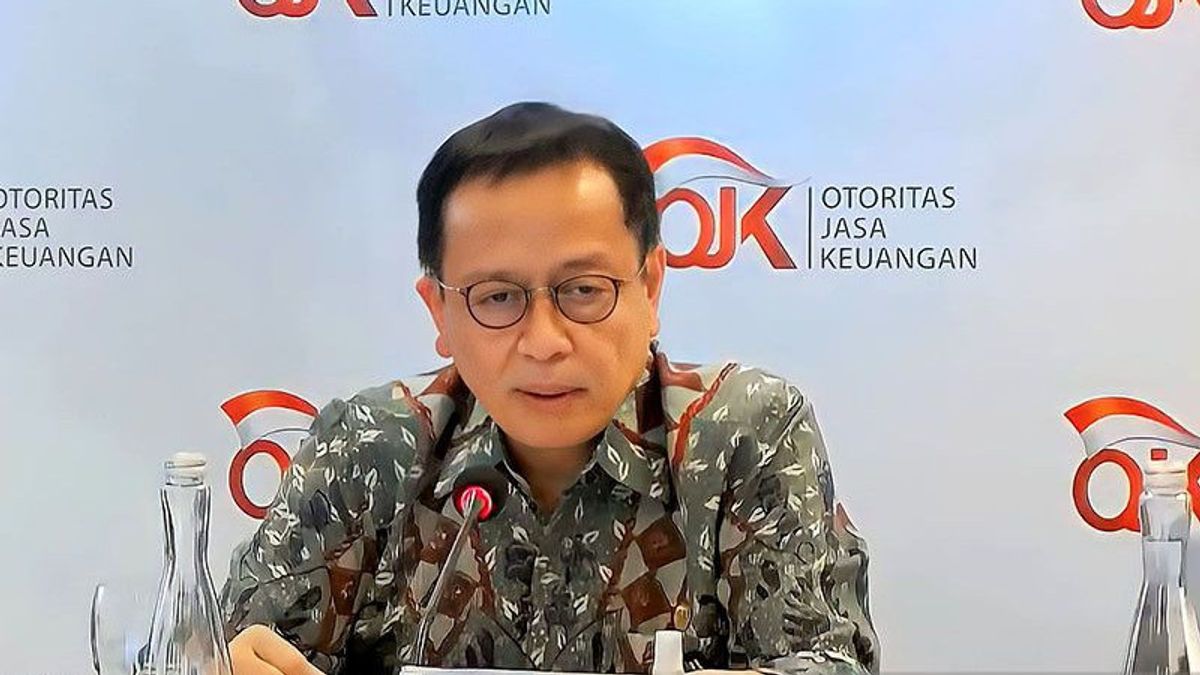JAKARTA - The Financial Services Authority (OJK) issued the Indonesia Banking Surveillance Report (LSPI) in the third quarter of 2023.
The report states that the economic growth of several major countries is experiencing divergences along with increasing global uncertainty.
Meanwhile, the IMF in the World Economic Outlook (WEO) October 2023 projects that global economic growth will slow down from 2022 by 3.5 percent (yoy) to 3.0 percent (yoy) in 2023 and 2.9 percent (yoy) in 2024.
OJK Banking Supervision Chief Executive Dian Ediana Rae said, in the midst of global inflation starting to slope, the benchmark interest rate of several countries remains at a relatively high level in line with the inflation rate which still has not reached the target of around 2 percent.
"Inflationary pressure in the future is estimated to still have high potential, especially because of the increase in energy and food prices due to geopolitical escalation in various regions that are still continuing," he explained in his official statement, Thursday, December 28.
Dian added that other factors that can affect inflationary pressures stem from the El Nino phenomenon that disrupts the process and level of food production.
In addition, according to Dian, China's economic slowdown also needs to be watched out for because it can affect the flow of trade and global economic growth going forward.
Di tengah ketidakpastian global tersebut, pada kuartal III2023 ekonomi domestik relatif tumbuh yaitu sebesar 4,94 persen (yoy), meski melambat dari triwulan sebelumnya sebesar 5,17 persen (yoy).
According to Dian, the relative strong growth in the domestic economy was driven by solid demand as reflected in the strong household consumption and increased investment amid the decline in government spending and export performance respectively due to the shift in personnel spending and the decline in export and import value in line with the slowdown in the global economy.
Dian said that the OJK continues to pay close attention to the development of global economic volatility and its impact on the domestic economy, which is accompanied by an intensive and sustainable individual banking surveillance policy.
"It is hoped that it will be able to maintain the stability of Indonesia's financial and banking system this year and in the coming years," he said.
In the future, Dian's request remains to pay attention to banking risks, especially market risk and its impact on liquidity risk, as well as the potential increase in credit risk in line with the increase in funding costs which can have an impact on decreasing customer purchasing power.
For this reason, banks are encouraged to increase their resilience through strengthening capital and maintaining adequate coverage of CKPN, as well as routinely doing stress tests to measure their capital skills in absorbing potential risks, especially related to the decline in the quality of restructuring loans.
"OJK also asks banks to continue to pay attention to the prudential banking aspect, professionalism, innovation, and always maintain integrity to achieve high and healthy growth," he concluded.
SEE ALSO:
In addition, in terms of strengthening regulations, the OJK report period issued six banking provisions in the form of four OJK Regulations (POJK) and two OJK Circular (SEOJK).
To support this, the OJK also issued two letters from the Chief Executive of Banking Supervisory (KEPP) regarding the Regulation Relaxation Policy regarding Credit Information Management Institutions, and Incentives for Commercial Banks regarding Natural Resource Export Result Foreign Exchange (DHE SDA).
Meanwhile, OJK is also actively coordinating with the relevant government and authorities in order to maintain financial system stability.
The English, Chinese, Japanese, Arabic, and French versions are automatically generated by the AI. So there may still be inaccuracies in translating, please always see Indonesian as our main language. (system supported by DigitalSiber.id)
















